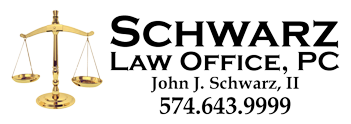WE KNOW HOW TO WORK WITH THE GOVERNMENT
The USDA and Farm Service Agency (FSA) administer numerous programs that are available to farmers. These include conservation programs, direct and counter cyclical payment programs, disaster assistance programs, energy programs and farm loan programs. Information regarding these programs can be found here: http://www.fsa.usda.gov.
Although there can be many pitfalls for farmers as to retaining eligibility in USDA/FSA programs, two provisions of federal law lurk that can invalidate eligibility for farmers: The Swampbuster Act and the Sodbuster Act.
Don’t ever think you cannot win a case against the USDA or the Farm Service Agency. Just because you are going against “the government” in a particular matter does not mean you cannot be successful in your case. John Schwarz has been successful many times for clients in matters pertaining to the USDA or Farm Service Agency.
There is always hope that you can be successful in an appeal regarding a swampbuster violation or a sodbuster violation.
THE SWAMPBUSTER ACT
Almost with all USDA/FSA programs, farmers agree to abide by the requirements of the “Swampbuster Act” and the “Sodbuster Act”. Failure to do so can lead to a farmer being ineligible for all USDA/FSA programs. This can be in the form of a Wetland Violation or a Planting Violation.
The Swampbuster Act stems from The Food Security Act of 1985, as amended, that requires any person receiving USDA benefits must comply with wetland conservation provisions of the Act. To maintain eligibility participants must certify that they have not produced crops on a converted wetlands after December 23, 1985, and did not convert a wetland after November 28, 1990, to make agricultural production possible.
If Swampbuster is violated, USDA farm program benefits may be lost. If participants produce a crop on a converted wetland, they may lose benefits for that year. If participants convert a wetland after November 28, 1990, they risk loss of benefits for the year the conversion took place, and for the years that follow until the wetland’s functions and values are restored.
However, the law offers several exemptions to producers. Some of these are a Good Faith Exemption, Commenced Conversion, Third Party Exemption, and Minimal Effect Exemption. If a producer qualifies for an exemption, then the producer can have penalties erased or reduced, as well as regain eligibility. So, a violation does not necessarily mean a producer will be deemed ineligible.
John Schwarz has successfully represented farmers cited for wetland violations. You should not attempt to try and represent yourself in these matters as the stakes are generally very high for a producer. Rather, you will need a professional, and should call “the wetland man”, John Schwarz.
THE SODBUSTER ACT
The “Sodbuster Act” was a program created by Title 12 of the Food Security Act of 1985 designed to discourage the plowing of erosion-prone grasslands for use as cropland. Violation of the act may cause a producer to lose eligibility to participate in farm programs.
The term “sodbusting” is used to identify the preparation of erosion-prone grasslands for use as cropland. Sodbuster violations are un-authorized practices on highly erodible lands that converted native vegetation such as rangeland or woodland, to crop production after Dec. 23, 1985. Farmers and ranchers should be aware that if they use highly erodible land for crop production without proper conservation measures, they risk losing eligibility to participate in FSA programs, which even includes the federal crop insurance program.
Before producers clear, plow or otherwise prepare areas not presently under crop production, they are required to file an AD-1026 form with the FSA, indicating the area to be brought into production. If NRCS indicates on a CPA-026 that the area will be highly erodible land, the producer will be required to develop and implement a conservation plan on the affected acreage, before bringing land into production.
John Schwarz has assisted clients with issues pertaining to USDA/FSA programs and eligibility. When an issue arises that threatens your ability to maintain eligibility in federal farm programs, John Schwarz can help.
310 North Chicago St.
PO Box 637
Royal Center, IN 46978
phone:
574.643.9999
fax:
574.643.9999

